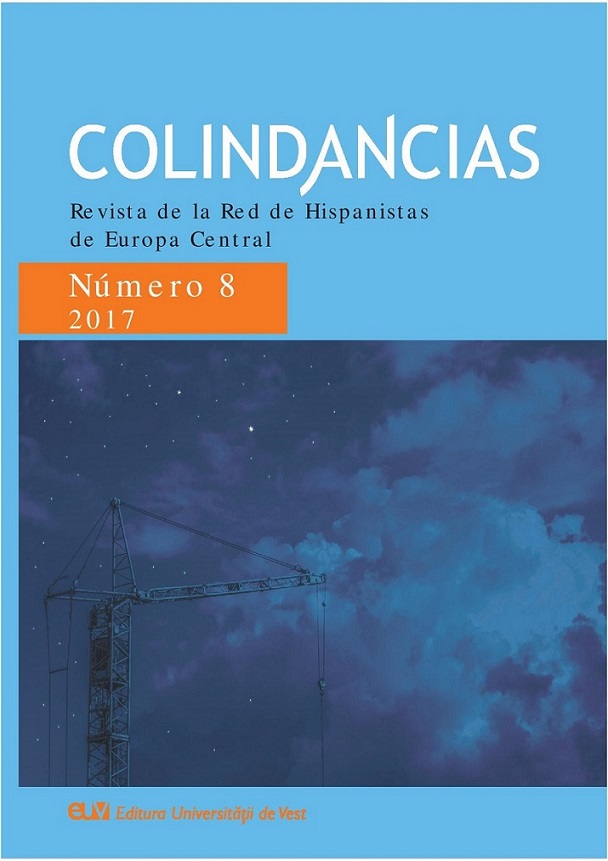Presencias fantasmales en la cuentística fantástica del Uruguay contemporáneo. Dos modalidades de representación del subgénero en la obra de Hugo Burel y Mario Delgado Aparaín
Ghostly presences in the fantastic story of Uruguay contemporary.
Author(s): Giuseppe Gatti RiccardiSubject(s): Studies of Literature, Recent History (1900 till today), Theory of Literature
Published by: Editura Universităţii de Vest din Timişoara
Keywords: contemporary Uruguayan narrative; fantastic literature; Hugo Burel; Mario Delgado Aparaín;
Summary/Abstract: Our study aims to analyze a section of fantastic discourse, the one that is linked to ghost stories, within the narrative production of two contemporary Uruguayan writers: Hugo Burel (1951) and Mario Delgado Aparaín (1949). The subject of our review will be two short stories: “El quinto piso” which Burel included in the compilation Esperando a la pianista y otros cuentos; this short story was pubblished in 1983 and represents an example of a tale written still during the time of the military dictatorship in the country. The second story that we analyze is “Un muchacho azul e infinitamente triste” that Delgado Aparaín published twenty years later, in 2003, in the compilation El canto de la corvina negra y otros cuentos. Based on the theoretical support provided by specialists such as María Negroni and Rosalba Campra, we will try to prove that both stories are placed ―even with their aesthetic peculiarities― within that frame of fantastic transgression that bases their rhetoric of fear on the opposition between the animate world (everything with movement, will, life) and the inanimate world (inert matter, such as sculptures, pictures, photographs or stones). Within this framework, the two writers present two ways of transgressing through the abolition, or suspension, of the boundaries between life and death. Burel does it by using the word “I”: it means that he is allowing the narrator to designate himself and to produce within the story a “necessary dialogue” between author and reader: we use the word “necessary” because the “mystery” that suddenly invades the narrative depends on the subjectivity of the narrator and is a product of a mental construction. In the narrative structure of the story of Delgado Aparaín, however, the “represented narrator “ is no longer a narrator who pronounces the word “I”, but the voice that observes and narrates is multiplied in a plurality of “observers”; in this case, the perception of the fantastic events by this multiple narrator is what gives to the fact a status of “reality”.
Journal: Colindancias - Revista de la Red de Hispanistas de Europa Central
- Issue Year: 2017
- Issue No: 8
- Page Range: 41-60
- Page Count: 20
- Language: Spanish

